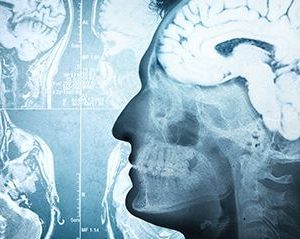- Are You Making This Expensive Thermostat Error This Winter?
- Recognizing the Signs of Hypothyroidism
- 10 Strategies to Overcome Insomnia
- Could Artificial Sweeteners Be Aging the Brain Faster?
- Techniques for Soothing Your Nervous System
- Does the Water in Your House Smell Funny? Here’s Why
- Can a Daily Dose of Apple Cider Vinegar Actually Aid Weight Loss?
- 6 Health Beverages That Can Actually Spike Your Blood Sugar
- Treatment Options for Social Anxiety Disorder
- Understanding the Connection Between Anxiety and Depression
New Insights Into How COVID-19 Damages the Brain

New research offers a novel explanation for the long-term brain problems many COVID-19 patients experience.
Many coronavirus patients report headaches and “brain fog” for weeks or months after they recover from respiratory symptoms. It’s been believed that these lingering neurological issues are the result of nerve cell damage, but the new study suggests that the virus may instead be striking the brain’s small blood vessels.
Previous studies found that COVID-19 can cause inflammation in and around the blood vessels elsewhere in the body, so the researchers decided to examine brain tissue for the same thing in 13 patients who died of COVID-19.
The investigators found that small blood vessels in the brain tissue had signs of inflammation and damage to their walls, but there was little evidence of damage to nerve cells, according to the study published online recently in the New England Journal of Medicine.
The authors noted that most of the brains analyzed in the study were from COVID-19 patients who weren’t hospitalized. Previous research has focused on patients who had long hospital stays, including being on ventilators.
Those factors can make it difficult to determine the direct impacts of the virus on the brain, explained study co-author Dr. Daniel Perl, director of the Brain Tissue Repository at the Uniformed Services University of the Health Sciences, in Washington, D.C.
“COVID-19 seems to have a propensity to damage small blood vessels in the brain, rather than the nerve cells themselves,” he said in a university news release.
“These findings address important concepts for understanding the acute and persistent neurologic manifestations of COVID-19, in general,” Perl added. “The pandemic is raging in both civilian and military populations and producing considerable mortality and long-term effects among those who have recovered from the infection. The results are of interest and importance to both communities.”
More information
The U.S. Centers for Disease Control and Prevention has more on COVID-19.
SOURCE: Uniformed Services University of the Health Sciences, news release, Jan. 8, 2021
Source: HealthDay
Copyright © 2026 HealthDay. All rights reserved.










